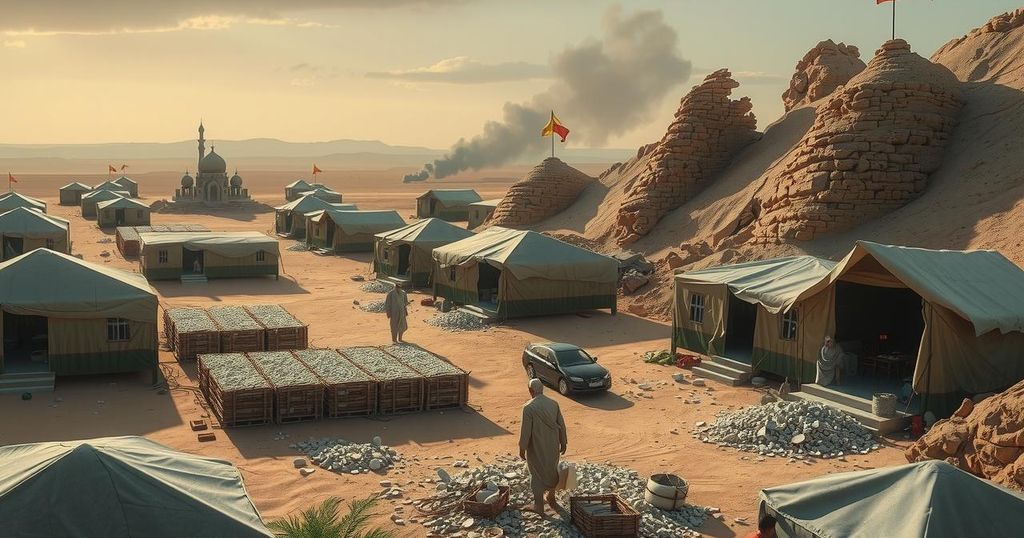Current Humanitarian Crises in Global Conflict Zones

This article discusses the severe humanitarian crises in various conflict zones: Gaza faces high civilian casualties and urgent shortages of resources; Yemen struggles with ongoing air strikes and insufficient funding for humanitarian efforts; Sudan experiences mass displacement due to violence in North Darfur; eastern DRC witnesses threats to children’s rights from armed groups; Somalia battles deadly floods; and Ukraine sees ongoing attacks escalating humanitarian needs. The situation calls for immediate international assistance and intervention.
Ongoing Humanitarian Crises in Conflict Zones
Occupied Palestinian Territory
The UN Office for the Coordination of Humanitarian Affairs (OCHA) reports severe civilian casualties in Gaza due to ongoing air strikes by Israeli forces. The prolonged blockade, persisting for over seven weeks, has deprived the population of essential supplies, exacerbating their humanitarian situation. OCHA’s assessments indicate increasing malnutrition, particularly among children, as food and medical supply shortages intensify. Injured civilians, including children, exhibit extreme vulnerability in an environment where adequate health services are critically lacking.
Yemen
Humanitarian conditions in Yemen remain dire as air strikes continue to affect civilian lives and health facilities. OCHA has reported significant casualties, including the deaths of five boys due to recent strikes. The funding for humanitarian assistance remains distressingly low at just over 8% of the required amount, underscoring the dire consequences of continued conflict. Humanitarian partners are increasingly unable to meet the rising needs of the population as the humanitarian crisis deepens.
Sudan
The situation in North Darfur has led to a mass displacement of civilians, particularly after the takeover of a refugee camp by Rapid Support Forces. The vacant Zamzam camp, previously home to hundreds of thousands, now faces a humanitarian crisis marked by critical shortages of food, water, and medical services. The UN is coordinating aid delivery to support displaced individuals, but logistical challenges severely limit access and relief efforts.
Democratic Republic of the Congo
The Democratic Republic of the Congo continues to face severe threats to children’s rights amidst escalating conflicts in eastern regions. Reports indicate incidents of forced marriages and the recruitment of minors by armed groups. These violations, along with school closures due to strikes, have exacerbated access to education for thousands. The ongoing violence is expected to lead to further displacement and humanitarian needs across the region.
Somalia
Severe flash floods have recently impacted nearly 30,000 individuals in Somalia, causing deaths and extensive property damage. Following months of drought, the heavy rains have overwhelmed local resources, compelling families to seek safety. Humanitarian organizations are conducting assessments to address emerging needs, but funding shortages significantly hinder response efforts.
Ukraine
In Ukraine, ongoing attacks continue to threaten civilian lives and escalate humanitarian requirements. Recent drone and glide bomb strikes in populous areas have resulted in civilian casualties and damage to infrastructure, including hospitals. The UN and NGOs are responding with emergency aid, providing essential support to affected communities, including meals and psychosocial services to alleviate suffering.
The ongoing humanitarian crises across various regions, including Palestine, Yemen, Sudan, the Democratic Republic of the Congo, Somalia, and Ukraine, reflect an urgent need for comprehensive international aid and intervention. Each locale faces unique challenges, such as escalating violence, severe resource shortages, and critical health risks, underscoring the importance of sustained humanitarian assistance. Failure to address these crises can lead to further deterioration of living conditions and increased mortality, emphasizing the need for immediate action from the global community.
Original Source: www.unocha.org








